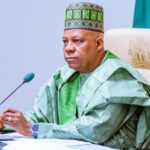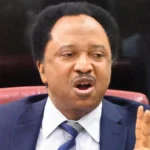
The conference got off with a raft of meetings with religious leaders, youth groups and women’s organisations, in efforts to get all on the same page with family planning. What singular lessons stood out?
For me, what stands out is the fact that a lot of the people who came are people who are important stakeholders. Important stakeholders for me are not necessarily the service providers, but the converted people who advocate for family planning. It is actually the people whose lives family planning affects, women. There is a good population of women, there is good participation of young people, and there is good participation of religious leaders and traditional leaders.
Now, the framing of family planning is not about contraception; family planning is about life. It is about being able to plan your life in such a way that when you have children you will be a responsible parent. When you have life, you will live your life to the fullest, to the best potentials that you have. It is like when you plan your family, you are able to pay the school fees. It is not just about contraception; it is planning to be who you are. It is planning to be a whole human being.
How far do you see this new framing going for family planning?
I don’t think that is a new framing. I think it is better understanding of what family planning is. We’ve come a long way to understand that family planning is a tool to an end. On its own, it is not an end. So, I think we are on the right track. The fact that we have religious leaders, we have traditional leaders is a plus. We have the National Council of Women’s Societies; we have Federation of Muslim Women Associations (among others). We have all these people who have relationship with real humans, I mean ordinary people who are most affected. I think we are on the right track. And, it is a very important tool for improving maternal mortality.
Considering the stance in funding of government toward family planning, what’s your sense of how the government is ready to step up on what’s required?
I think the issue of access is really important in the sense that when the demand, like anything else rises, people themselves will push government. We have had the head of USAID challenging government to stand up to its responsibility and ensure that family planning commodities and other important life-saving commodities for maternal health are available.
Like in this country, we have a [package], it is not just family planning, it is life-saving commodities, which include things like misopostrol for prevention of post-partum haemorrhage and essential medicines that make pregnant women live healthy and productive lives.
So, while we advocate that government takes that responsibility to step it up, the most important responsibility is ensuring that government keeps to its commitment which lies with the media. I think this is where, at the end of this conference, if journalists report that we’ve had nice papers, so many important people came, people attending the programme, it is a done deal. But, what happens after that? What happens now after reporting it? It is 10 percent of the job. The 90 percent of the job is what happens after that.
One of the key things that will happen is that we heard the minister say government would increase the reproductive health commodity commitment from $3 million to $4 million. You journalists need to make sure that that it is really in the 2017 budget, that it is really released and that it is used. You will need to monitor it to make sure it is not stolen. That is the biggest job you will do for us.
Some of the speakers here have pointed at the National Population Policy and called for a review. As an expert in this area, what are the things you will like to see in the reviewed policy?
I think a reviewed policy, for me, should be human-centred. Every person you see in this country lives within a context. So, for me, a review effort is a population policy that is human-centred, that is development centred, and that is looking at moving the whole country into the next level.
We are at a critical point in this country – the recession – a lot of you may differ from me. The recession for me is a blessing. A blessing in the sense that it is making us reflect and ask tough questions as Nigerians.
We are now having to live the reality of who we are. No more borrowing. If you are earning N200,000, you now can’t buy a N2 million car and struggle to borrow to fuel your car or spend carelessly to buy party clothes.
We are now prioritizing. We are prioritizing school fees over clothes. I think this is good. If we can sustain this, it will make us better human beings, and we will put the development of our country at the centre.
Now, here, people are beginning to carpool. It will reduce our emission, it will reduce wastage on petroleum. It will make us better human beings and allow us talk to each other and share ideas along the drive to work and back. I think if we use it positively, it will take us to the next level.
 Join Daily Trust WhatsApp Community For Quick Access To News and Happenings Around You.
Join Daily Trust WhatsApp Community For Quick Access To News and Happenings Around You.


